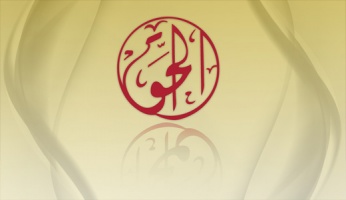- About
- News
-
Advocacy
- Accountability & Litigation
- International Advocacy
- National Advocacy
- Documentation
- FAI Unit
- Al-Haq Publications
- Library


- About
- News
-
Advocacy
- Accountability & Litigation
- International Advocacy
- National Advocacy
- Documentation
- FAI Unit
- Al-Haq Publications
- Library
 Between January 2014 and 31 August 2014, Al-Haq documented the demolition of 198 Palestinian structures and homes in the West Bank, including East Jerusalem. Throughout 2013, Al-Haq documented the demolition of 326 Palestinian homes and structures. Most demolitions are carried out by the Israeli authorities either under the pretext that the owners lack a building permit or, in other instances, for alleged security reasons. In recent years 94% of Palestinian applications for building permits have been denied by the Israeli authorities.
Between January 2014 and 31 August 2014, Al-Haq documented the demolition of 198 Palestinian structures and homes in the West Bank, including East Jerusalem. Throughout 2013, Al-Haq documented the demolition of 326 Palestinian homes and structures. Most demolitions are carried out by the Israeli authorities either under the pretext that the owners lack a building permit or, in other instances, for alleged security reasons. In recent years 94% of Palestinian applications for building permits have been denied by the Israeli authorities.
Throughout September 2014, Al-Haq has documented various cases in which Palestinian property, including houses, residential and agricultural structures and animal sheds have been demolished by the Israeli authorities. In the meantime, the Israeli authorities continue to deliver demolition notices and stop work orders for Palestinians, mostly in Area C and East Jerusalem. Area C makes up approximately 59 per cent of the West Bank but, according to the Israeli Committee against House Demolitions (ICAHD), contains only about 5% of the Palestinian population of the West Bank, largely due to the Israeli policy of house demolitions in the area.
Ahmad Mahmoud Daraghma – Bardala – Toubas
Ahmad, 66, owns a piece of land in the northern outskirts of Bardala village. A year ago, his son, Yaseen, 27, built a structure in which to keep his animals. On 16 September, when Yaseen had finished feeding the animals, he saw a white jeep belonging to the Israeli Civil Administration circling the animal structure for approximately 15 minutes. Yaseen returned to the structure to find a paper in Hebrew laying on the ground near it. Ahmad asked a neighbour to translate the paper. His neighbour informed him that it was an order from the Israeli authorities to halt construction work on the land. Another notice was delivered to a nearby animal structure on the same day. (Al-Haq Affidavit No. 10008/2014)
Khader Nafeth ‘Awawda – Deir Dibwan – Ramallah
Khader and his brother have two structures in which they keep their animals in the Deir Dibwan area. On 20 August 2014, three Israeli Civil Administration vehicles, accompanied by four Israeli military jeeps and a JCB excavator, arrived in the area and demolished one of the animal barracks. They also issued a stop work order for the remaining structure, despite the fact that work on the structure was already complete and the structure was not yet in use.
A lawyer appointed by the Jerusalem Legal Centre followed up on the issue. The notice included a court date for 1 September. Khader went to Beit El on the scheduled date. There, he was told that he must demolish the animal structure himself. Should he refuse, the Israeli authorities would carry out the demolition and charge Khader a high price for administrative costs. The Israeli authorities also told Khader he would be detained for 12 days should he refuse to demolish the structure.
On Friday 12 September, Khader demolished the 20 metres squared (m2) animal structure. The two animal structures were essential to the livelihood of Khader and his brother, as well as the 15 family members that they support.
Baha’ Abdelrahman Zyud – Khirbet al-Hafira – Jenin
Baha’, 29, lives in Khirbet al-Hafira, west Jenin. The village is classified as Area C, meaning that it is under full Israeli control. Khirbet al-Hafira is not connected to a water network and instead the residents depend on water wells, which collect and store rainwater. Baha’ has owned a water well to the south-west of his residence since 1996. The well is 15 metres deep and is an essential source of water for Baha’ and his family, particularly in the summer.
On the morning of 3 September, a white Israeli Civil Administration jeep, accompanied by two Israeli military jeeps, arrived in front of Baha’s home. The force inspected the premises. An officer gave Baha’ two warnings, one of which demanded that he stop using the water well. The other warning was a stop work order for the fence he has built. Baha’ had placed zinc sheets along five metres of the fence so that he could store his equipment underneath. A court session was scheduled for 22 September 2014 to address both warnings.
The Israeli authorities rarely grant building permits in Area C. If the water well is demolished, Baha’ and his family will lose their main source of water and the family will be forced to buy costly water tanks to meet their needs. (Al-Haq Affidavit No. 10015/2014)
The demolition of Palestinian property by the Israeli authorities has led to the transfer of families and whole communities in violation of international law. Furthermore, the destruction of property unless it is absolutely necessary for military operations is prohibited by the Fourth Geneva Convention. Both forcible transfer and the destruction of property not required by military necessity constitute grave breaches of the Geneva Conventions and are listed as war crimes by the Rome Statute of the International Criminal Court.
